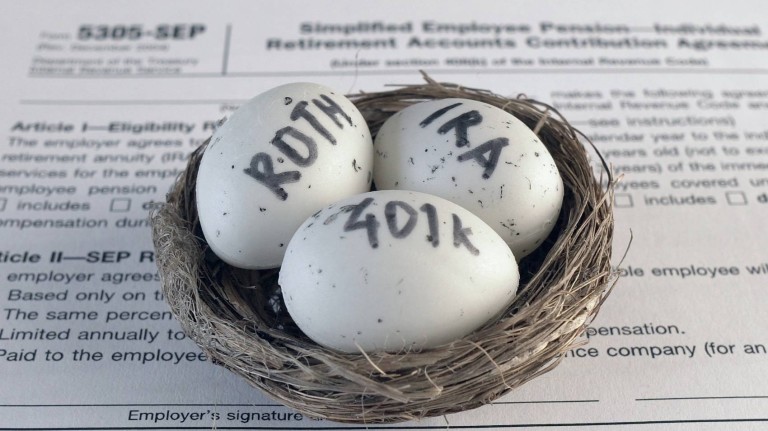Compound interest is an important part of wealth management and saving for retirement. Applying the productivity of compound interest to work for your retirement accounts is necessary to reach most financial goals. Utilizing William Bevins CFP® CTFA a Franklin TN financial advisor can help take the mystery out of compound interest. Take advantage of William’s experience along with his unbiased advice and recommendations. Visit his website for more details.
Unraveling the Mystique of Compound Interest: A Key Player in Wealth Creation
In the vast universe of finance and investment, few phenomena are as universally appreciated yet misunderstood as compound interest. Often dubbed the 'eighth wonder of the world', this mathematical marvel forms the backbone of personal wealth creation and investment strategies. From managing your 401k to contributing to your IRA, the concept of compound interest stands as an irreplaceable pillar.
A Brief Introduction to Compound Interest
Simply put, compound interest is the interest you earn on both the principal (the original amount of money) and the interest that has previously been added to it. Unlike simple interest, where you earn interest only on the original amount, compound interest allows your investment to grow at an increasing rate. It's akin to a snowball rolling down a hill, gaining both speed and size as it goes.
If you're planning for retirement or building wealth, understanding compound interest is an indispensable part of your financial literacy toolkit. It is one of the core principles that underpin effective wealth management strategies. With the power of compounding, you can see your savings or investments grow exponentially over time, providing a robust platform for future financial security.
"Compound interest is the eighth wonder of the world. He who understands it earns it; he who doesn't, pays it." - Albert Einstein
The Magic of Compounding in Retirement Accounts
Take, for example, retirement accounts. These accounts, whether they be traditional 401ks, Roth IRAs, or other types of retirement accounts, harness the power of compounding to a fantastic degree. They are designed to optimize the benefits of compound interest, maximizing the growth of your nest egg.
The magic lies in the frequency of compounding - the more frequent the compounding, the greater the amount of compound interest. For instance, if you contribute regularly to your IRA, not only will your contributions grow, but the interest on those contributions will also grow. This interest will then be reinvested, earn its own interest, and so on. This cycle repeats throughout the life of your investment, resulting in a substantial amount of wealth over time.
Compound interest is also why starting retirement planning early is such sound advice. It’s not merely a platitude thrown around by financial planners. The more time your money has to compound, the more growth you'll see.
The Impact of Compound Interest in Different Scenarios
Let's dive into a real-world scenario to illustrate the compelling effect of compound interest. Consider two individuals, Alice and Bob. Alice starts investing $200 per month in her Roth IRA at age 25, while Bob starts doing the same at age 35. Both of them earn a conservative 7% annual return on their investments.
When they both retire at age 65, Alice would have contributed $96,000, while Bob would have contributed $72,000. However, thanks to compound interest, Alice’s account would have grown to approximately $525,000, while Bob’s account would have reached around $206,000. The ten-year head start allowed Alice’s contributions to compound for a longer period, resulting in a significantly larger sum at retirement.
Understanding this financial concept can also play a crucial role in financial planning for millennials, as it illustrates the importance of starting investments early. It becomes a central theme in creating long-lasting wealth.
Next, we'll explore compound interest in the context of other financial strategies and delve deeper into how it can help you navigate the financial side of divorce, protect your wealth during volatile markets, and understand the advantages of Roth IRA conversions.
Compound Interest and Effective Financial Planning
The notion of compound interest isn't limited to retirement planning. It's also pivotal to general financial planning, particularly when creating an effective financial plan. One key aspect that comes into play here is the rate of interest. A higher rate can significantly boost the effect of compounding, leading to a substantial increase in the total returns over time.
"Remember that time is money." - Benjamin Franklin
This quote is particularly relevant when it comes to compound interest. The length of time you leave your money invested can dramatically impact your returns. This is why financial advisors often emphasize starting as early as possible. It’s not about how much you invest but how long you leave it invested that truly makes a difference.
Compound Interest in the Event of Divorce
Navigating the financial implications of life-changing events like divorce can be daunting. Understanding compound interest can make a big difference in how you manage your wealth during this difficult time. Consider, for example, how retirement accounts are divided in a divorce. It’s essential to understand how the division of these accounts, which are often subject to compound interest, can impact your financial future.
If you’re in the process of divorce or considering it, you’ll find it beneficial to learn what to know about the financial side of divorce. A deeper understanding of compound interest can help you make informed decisions that ensure your financial well-being in the long run.
Managing Compound Interest during Market Volatility
Understanding compound interest can also be beneficial during periods of market volatility. With the right strategies, you can protect your wealth during volatile markets by leveraging the power of compound interest. Regardless of market ups and downs, compound interest continues to work its magic in the long term. It's a reminder that investing should always be viewed with a long-term perspective.
Roth IRA Conversions and Compound Interest
Compound interest also plays a significant role when considering Roth IRA conversions. When you convert from a traditional IRA to a Roth IRA, you are essentially paying taxes now to avoid paying them in the future. Compound interest comes into play as the funds in a Roth IRA grow tax-free over time, potentially leading to significant savings.
Winding down our deep dive into compound interest, we'll explore how this powerful financial principle applies to scenarios like changing jobs and how it ties in with ESG investing. We'll also look at how fiduciary financial advisors can help you make the most of compound interest.
Navigating Job Transitions and Compound Interest
Let's look at another scenario where understanding compound interest is crucial—changing jobs. When you switch jobs, you may be wondering what to do with your existing 401(k). Should you leave it with your former employer, roll it into a new 401(k), or consider a Roth IRA conversion? This decision can have significant implications for how compound interest accumulates in your retirement savings.
For instance, if you're considering 401(k) rollover options when changing jobs, bear in mind that by rolling over a 401(k) into an IRA, you can continue to enjoy the benefits of tax-deferred compounding. Similarly, understanding compound interest can guide you when considering whether to take your 401(k) with you when changing jobs.
ESG Investing and Compound Interest
Moving from the traditional realm of IRAs and 401(k)s, compound interest also plays a role in the growing field of ESG (Environmental, Social, and Governance) investing. In ESG investing, the goal is not just financial gain but also creating a positive impact on society and the environment. The power of compound interest here is that it can magnify the impact of ESG investments over time. To know more, check out this comprehensive guide on what is ESG investing.
Harnessing Compound Interest with a Certified Financial Planner
No matter how you slice it, compound interest is a powerful tool that can significantly influence your financial journey. Yet, its intricacies can sometimes be challenging to navigate alone. This is where a certified financial planner comes into the picture.
Having a financial advisor who is a fiduciary—someone who is ethically bound to act in your best interest—can provide the guidance you need to harness compound interest effectively. If you're considering working with a financial professional, understand the difference between a financial advisor vs. a financial planner.
Conclusion
Compound interest, often referred to as the 'eighth wonder of the world', is a potent force in personal finance. From helping you grow wealth for retirement to navigating life changes, understanding compound interest can guide you on the path to financial prosperity. Take advantage of this financial marvel, start early, and remember, as Albert Einstein supposedly said, "He who understands it, earns it... he who doesn't... pays it."
About William Bevins
William Bevins has spent a career within finance, investing, and advice. Today William serves as a fiduciary offering clients of all economic backgrounds help with investing, wealth creation, retirement planning, and more. Reach William at his email address - [email protected] or visit his website WilliamBevins.com. Follow on Facebook.




